
Malin Freeborn
I studied Philosophy in Scotland, but now live in Serbia with my wife and cat. She’s extremely needy, and regularly yells or threatens violence, but most of it’s directed at my wife, so I don’t mind.
I spend my better nights playing RPGs, and many more writing BIND in LaTeX.
Folding Rules
All rules are bad, but many are necessary. A game about travel without rules for carrying things just forces the GM to come up with rules on the fly. But needing rules to resolve a lot of situations doesn’t mean a lot rules. Designers can cheat by folding rules over each other, so they cover more area, without taking up more space in the toolkit.
Read MorePlaytesting BIND
I can’t remember most of what playtesting taught me over the last ten years, but I remember these things:
Read MoreOnly a Company Can Make an RPG
The RPG scene has repeatedly laughed, cried, or tooted about the various ‘indie RPGs’ made by corporations with with multiple accountants. But wherever you want to draw the line, it can’t be a single author, because nobody makes a standard RPG alone. Even the smallest, the most indie of the indie-RPGs, has a credits page at the start. Any book with only one person to credit wouldn’t have an editor; and any book without an editor desperately needs one.1
Read More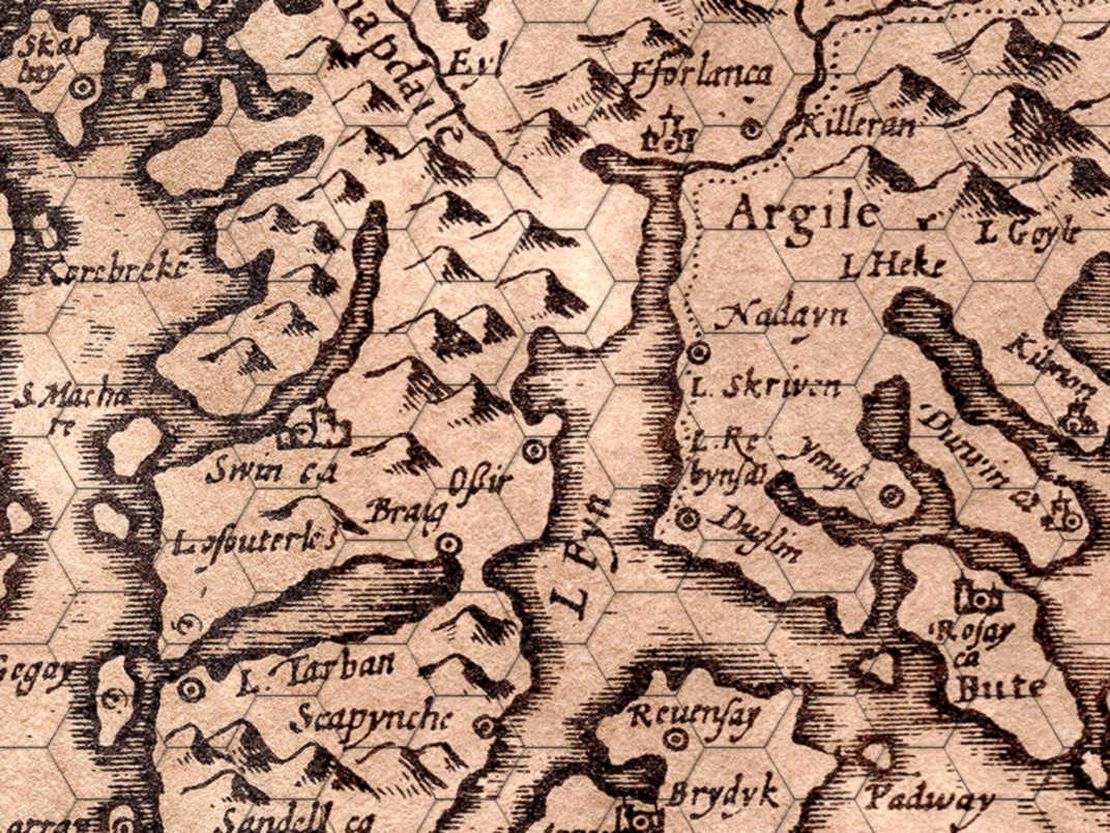
Scot Hexes
This is a response to Robgoblin’s post on hex maps . It should have been an email, but Robgoblin has no contact details on the blog.
Read More
Machine Generated Images vs Photoshop
I grew up with people questioning whether you can be a real artist and still use Ctrl+z. Before that, people probably wondered if digital photography was ‘real photography’. My generation feels deep suspicion towards any kind of ’not-real-art’ arguments. Now Chatbot9000 has flooded the web with saccharine kittens and uncanny valley boobs, and they’re clearly ’not actually art’, but it’s hard to say why. So here is why I say these images are not real art. They are not designed, nor planned, and cannot represent anything.
Read More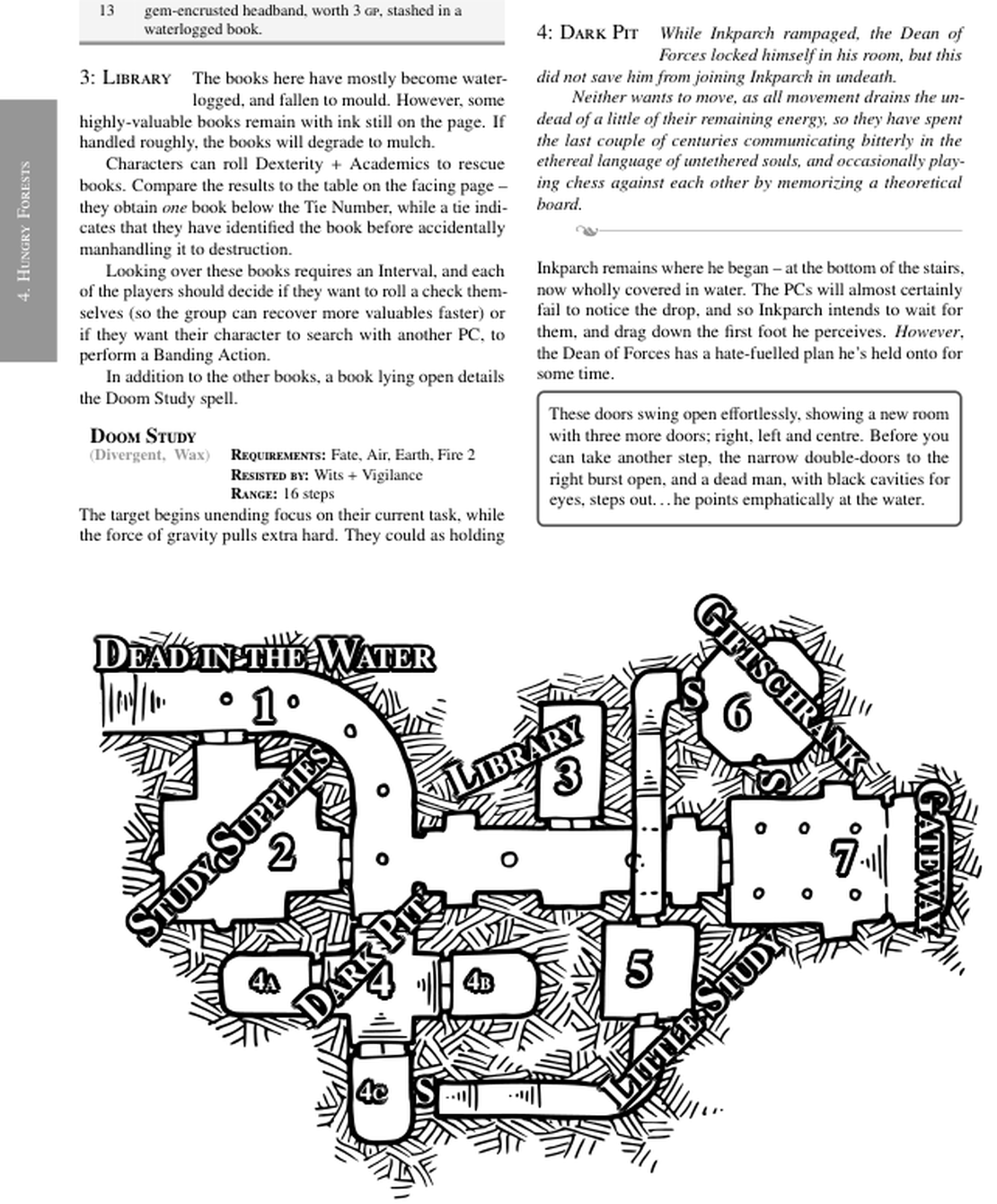
The Joys of Automation
I don’t think any sane individual could write something like BIND without automation tools. Games with a similar scope require a team.
Read MoreBalancing Mana Points
One Reddit comment described the problem of using Mana Points in an RPG (as opposed to spell slots):
Read MoreShow Me in the Module
I have a beef with chonky source books that say ‘changelings do this’, and ‘always describe the traps, don’t just say 1D6 trap-damage’, and then expecting the reader to create the world in adherence to these principles.
Read MoreBIND's Story Point System
The Problem I just wanted to rock up to the table and start the game, but the DM had other ideas. He wanted all of us to write a character back-story. Having three jobs at the time, I didn’t feel enamoured with my homework. The little story meant a hurdle to jump over to get to the actual game.
Read MoreTheft as Mnemonics
The old A,D&D Ravenloft modules were some cheesy shite. Even the most sullen and macabre Goth in Gotham couldn’t extract a nugget of honest fear from the campy Hammer Horror rip-offs. But we loved them. Why?
Read More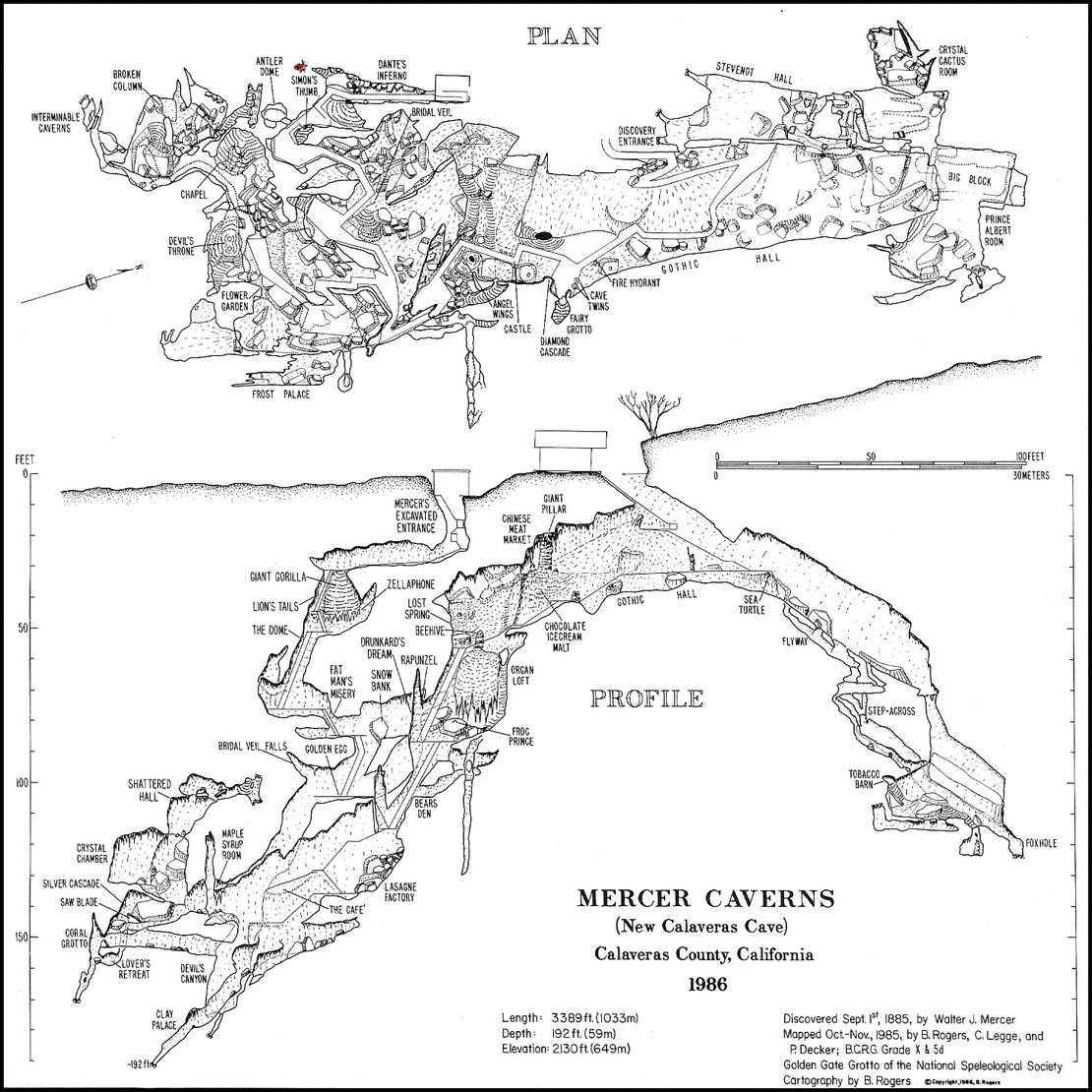
Why Jaquays?
Linear dungeons, where players see room 1, then room 2, all in order, can feel constraining.
Read MoreBIND's Magic, Part I
My third BIND campaign ended in glorious disaster and nonsense which forced me to reforge magic.
Read MoreWeaving Stories
My RPG games follow a format which avoids railroading, without any need for elaborate settings or difficult NPC relations. I call it ‘story weaving’, because it lets me stretch the metaphor.
Read MoreThe Quantum Ogre and the Massive Idiot
Here is a silver piece, old woman. Now tell me my fortune! What will I see on the road?
Read MoreTreasure Type P
A,D&D gave monsters random treasures like this: Type Gold Silver Copper Scroll Potion Magical Item S 100-600 1-10 - - - - P 100-800 100-400 - 20% 15% - The system goes like this:
Read MoreLaTeX + Git vs Google Docs
People who want to work with others on an RPG naturally tend towards Google docs. It seems so easy. They send the link out, people make edit suggestions, and you click ‘approve’ or ‘deny’. Everyone’s generating spells, and spelling corrections at 100 kph, and it all looks great.
Read MoreLaTeX vs InDesign
I think it’s fair to say that Adobe’s InDesign is the standard publishing tool for RPGs, or at least the most common among the most well-known RPGs. However, it’s clearly inappropriate for BIND.
Read MoreRandom Encounters Disarm Chekov's Gun
Chekov’s gun poses a real threat to some games. If a group playing Vampire: The Masquerade (‘VtM’) encounter a Ravnos, spinning illusions, and confusing mortals, then the next time they hear about unusual events, they will assume that the Ravnos did this. Clearly - the Ravnos is part of the plot! After all, VtM draws heavily from literature; or rather, it draws a lot from the idea-spaces of people who like to analyse literature while telling you that they analyse literature.
Read MoreHaving a Bash at Travel in BIND
They say you have to playtest, but they forget that I’m a lazy man, so when it came to travel rules, I didn’t feel like simulating a bunch of journeys. So it’s time to get the computer to do the work for me.
Read MoreAgainst Collectors
I sometimes feel that collections can imply something shameful, and it’s especially potent in RPGs. It has something to do with wanting to horde, rather than use; to own rather than do. I can’t fully articulate the feeling, but it has something to do with one thing coming from on high as the ‘definitive’ idea, the ‘canonical’ item, idea, or procedure, which then makes everything else wrong in comparison.
Read MoreExtrapolation & Necessity
When designing Fenestra, I noticed it had no magical universities. I really mean ’noticed’, rather than ‘stipulated’, or ‘invented’.
Read MoreThe Module Decalogue
Ronald Knox wrote ten rules on how to avoid ruining a murder mystery with an unsatisfying solution. They apply very well to writing and running RPG modules, with a little alteration.
Read MoreDesigning around Spike-Traps
When making things, once in a while you spot a pit-trap laden with spikes, and screech to a halt to think about the route ahead carefully. When making chairs, I guess people test by sitting in the chair. Writers and RPG designers can’t get this kind of snappy feedback, so I guess we’re all a bit fumbly when testing solutions. I certainly am.
Read MoreOpen Source RPGs
New RPG creators and tech-startups both enjoy giving themselves the badge of ‘open source’ without having to open up a single source file. In the tech world, they call the company ‘Open AI’, and in the RPG space, they call their licence the ‘open gaming licence’, or simply declare they have an ‘open RPG’, then let people infer their good intentions from the name alone. This shallow illusion has bamboozled just as many RPG enthusiasts as tech optimists.
Read MoreThe Cost of Shared Narrative
RPGs with a shared narrative mechanic - where players and the GM both come up with interesting people, results, and situations - come with a cost. They pull focus away from the puzzle elements of the RPG, and that’s my favourite element, so I can’t see myself enjoying shared narration mechanics.
Read More
Machines Learn Unlearning to Pole-Dance
I wrote this piece about Machine-Learning art a year ago, and set it to self-publish. Let’s see how much of an idiot I look like!
Read MorePrint it Yourself
I’ve decided against having online printing available for BIND. This may change, but here’s the thinking so far:
Read MoreConsumers of BIND
I’ve rather gone off the notion of ‘collectibles’. Collectible RPG books are special because they can’t meet the demand. We can’t all have a copy of those original D&D books, or whatever swanky thing White Wolf brought out with the expensive full-page art.
Read MoreThe Problems with D&D
A lot of the motivation for writing this book was because A,D&D never seemed to live up to its promises. The newer editions were a clear improvement, but never seemed to release the original game’s shackles.
Read MoreRunning an RPG in Real-Time, All the Time
Last year, I got excited about the idea of tracking realworld time over downtime . Shortly after I implemented it in my campaign, and it served the entire table, very well.
Read MoreRailroading: The Definitive Definition
Railroading chat devolves into nonsense, as people are working with unclear definitions. Here’s the solution:
Read MoreSubraces Should be Cultures
Referring to elves as a ‘race’ makes perfect sense. They’re clearly different from the other humanoids, have their own features, and biological properties and oddities.1
Read MoreParallel Rules and BIND
I want contradictory things for BIND, so I’ve been trying to do both. And I have finally made it work…I think.
Read MoreHappily Ahistorical
RPG worlds need histories, so I had to write some history for BIND’s world, Fenestra. This was a big mistake.
Read MoreHow I Made BIND's Monsters
BIND began as a D&D-reaction. “Mathematically, these rules stand some serious improvement”. After that, I only wanted some generic fantasy monsters to make an example game.
Read MoreWriting for the GM
I don’t have the reading time for RPGs I once did (or for anything). I’d like to chalk if up to being an adult with a job now, but perhaps the truth is just ‘internet’.
Read MoreWhy BIND Rules Don't Allow Players to Go for the Eyes
(a story about spreadsheet failure) I’ve considered changing BIND’s ’to-hit’ system to let players ‘go for the eyes’ (or a headshot, or otherwise decide to attempt a vitals shot), and decided against it. My reasons sit below, but expect lots of boring numbers. You have been warned. (or just skip to the conclusions)
Read More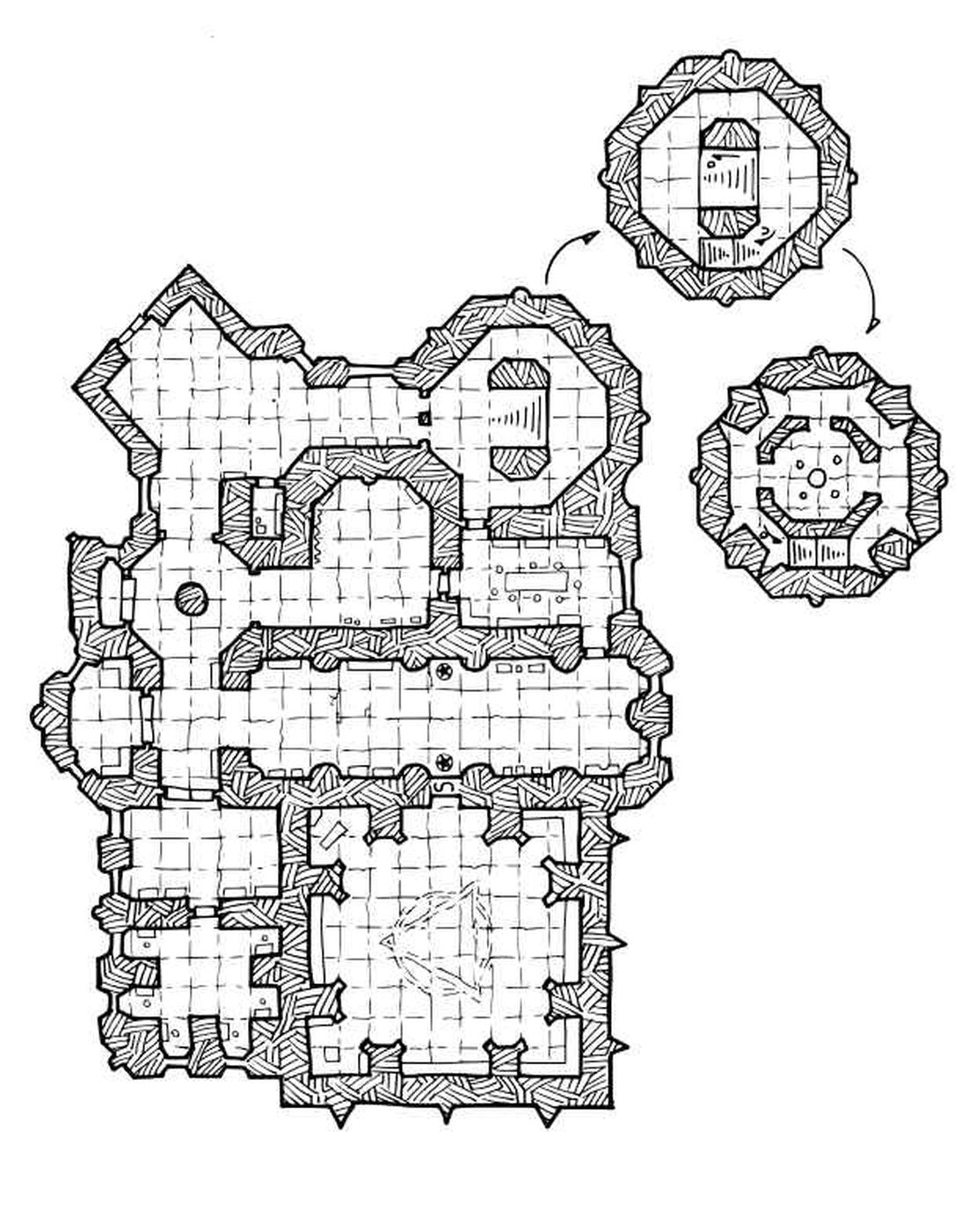
New Handouts
BIND’s maps have their numbers and comments applied by its writing tool, LaTeX. This makes handouts really easy, because the same map can present different layers to different people.
Read More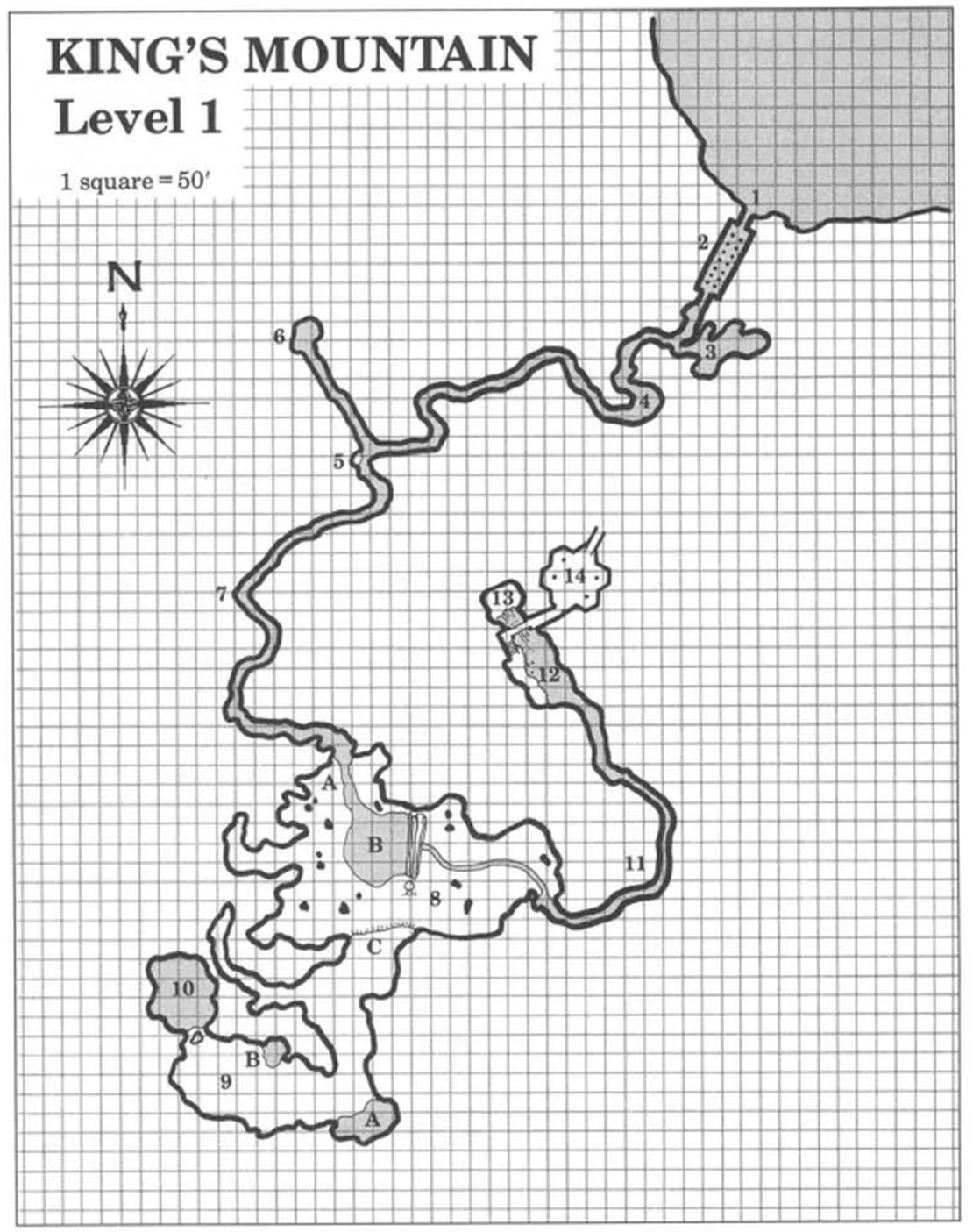
Dungeons Need More Space
The dungeon ecosystem doesn’t make a whole lot of sense, but I think Tolkien has a fix.
Read MoreNo Introduction Necessary
It’s been commented that BIND has no introduction, saying ‘what is a roleplaying game?’, and I don’t think it needs one.
Read MoreMinified vs Minimalist Rules
Tiny rulebooks are all the rage, and it’s great. The game of go has (arguably) 3 rules. Chess has a dozen rules. Monopoly has that little booklet-thing which nobody reads. RPGs often have 400 pages of rules without counting an adventure module, and often lack proper indexing. This hobby is mad, and the backlash against that madness feels refreshing.
Read MoreSpreadsheets are Great
Whenever I’m unsure about a rule, I pull out a basic spreadsheet, and start populating numbers.
Read MoreAlways Say the Target Number
A player rolls the dice, and the table watches the result, like a roulette ball bouncing about. Rothgar has a +4 to make the jump, but the chasm demands a Target Number (TN) of 12.
Read MoreReal Time Passing Between Games
RPG Vloggers chatting about Gygax note on real-world time-synchronization have got me thinking about really using this rule. In case you haven’t heard the idea - Gygax demanded that every day which passes in the real-world, one day passes in the game. The troupe starts and ends their games somewhere safe, like a tavern in town.
Read MoreSystem Realism Matters
A hundred paces down the dark tunnel, you see dozens of goblins dancing round a fire and singing about eating anything that moves.
Read MoreI Want Realistic Dragons
Weighing into an ancient (or at least senile) fantasy debate, I’d like to go back a step. The debate usually goes like this:
Read MoreFate Points in BIND
Remember that book or film where the protagonist received a nasty wound, then persevered, and won the day? Well that can’t happen in RPGs, and that’s a shame. So my solution is Fate Points (FP).
Read MoreThe OGL is not Open
The Open Gaming Licence (OGL) does not in fact produce terribly open games, so I wish people would stop referring to such RPGs as ‘open source’.
Read MoreThe Open Source RPG Dream
The cynics say that we keep reinventing the wheel. They say we have too many RPGs, mostly doing the same thing, and why bother to write yet another RPG about elves and magic swords? And they have one thing right - we should stop re-writing RPGs from scratch. Instead, we should change them.
Read More